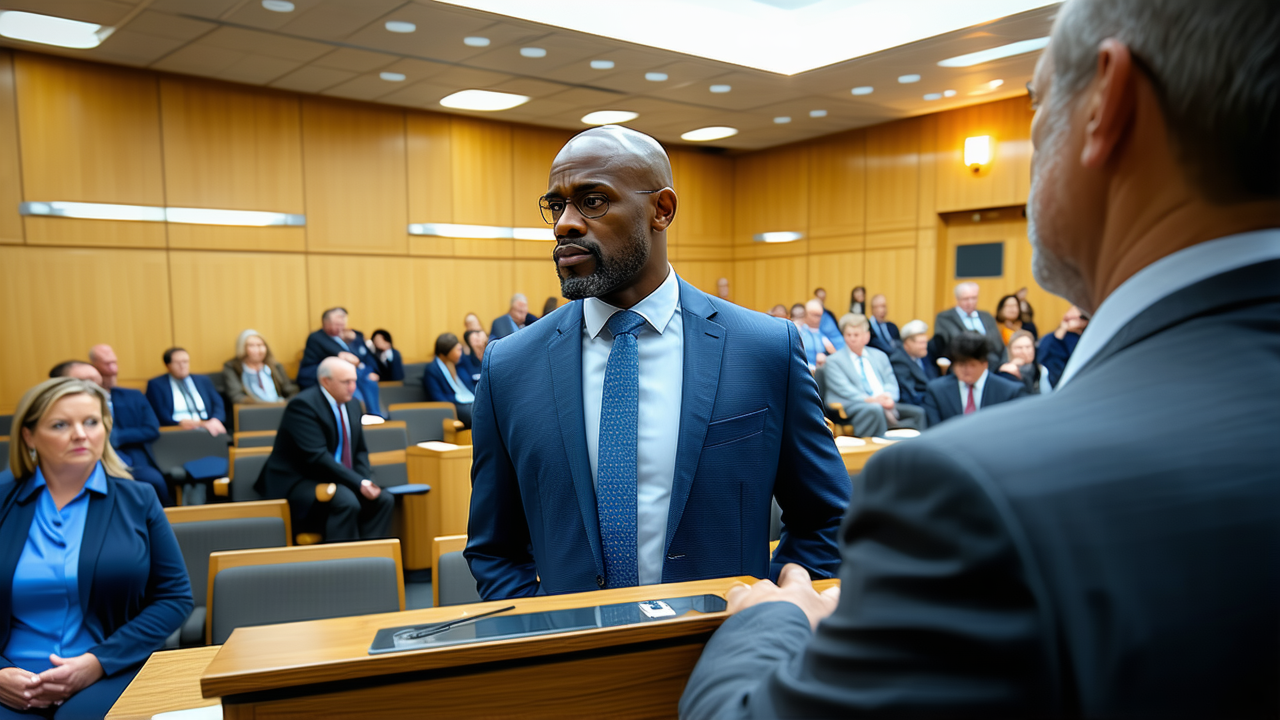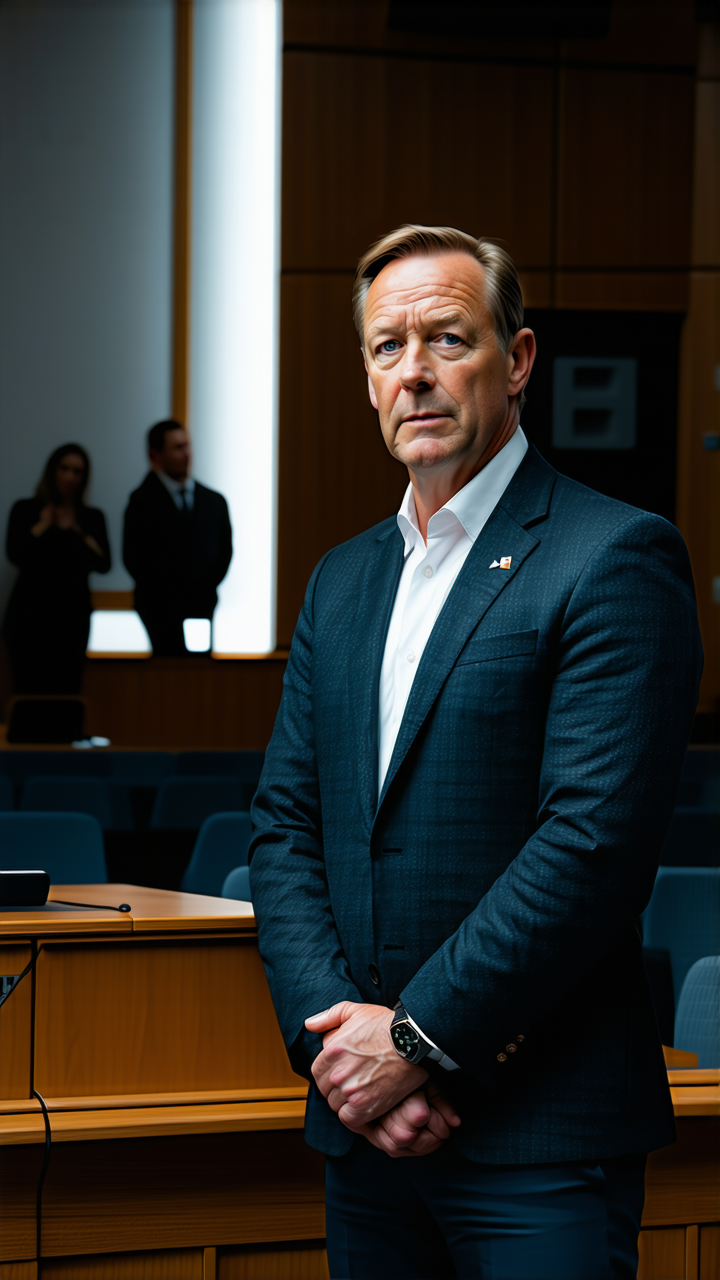Ex-top cop Jevon McSkimming’s name suppression lifted as charges revealed
Ex-top cop Jevon McSkimming’s name suppression lifted as charges revealed
Wellington, New Zealand — A prominent New Zealander whose case was shrouded in secrecy for months can now be identified as former Deputy Police Commissioner Jevon McSkimming. The ex-top cop, 52, now faces eight charges related to the possession of objectionable material, including child exploitation and bestiality content.
The name suppression, which had been in place since early July, was lifted today after McSkimming’s legal team withdrew their application for continued suppression. This means that the public can now be informed about the nature of the charges he faces and the details of his case.
McSkimming appeared in court today in person, dressed in business attire and a Swanndri-style jacket. During the hearing, he was seen fiddling with his cellphone and looking around at the assembled media. His lawyer, Letizea Ord, confirmed to Judge Tim Black that the name suppression would no longer be pursued.
“There is not a further application in respect of name suppression, it’s accepted that it can lapse today,” Ord said in court.
Ord requested a new hearing date for November and has not yet entered pleas on her client’s behalf. Judge Black remanded McSkimming on bail until his next court appearance.
McSkimming had been suspended on full pay since December 2024 while under investigation for a separate allegation. However, the nature of that original allegation, which led to his suspension, remains confidential due to ongoing legal proceedings.
Earlier reports indicated that detectives had allegedly discovered pornographic material on McSkimming’s electronic work devices. At the time, some of the material was being assessed to determine whether it could be classified as objectionable.
McSkimming immediately resigned upon discovery of the material and sought an injunction to prevent media from reporting on the nature of the alleged content. However, the High Court declined the injunction, with Justice Karen Grau ruling that the public had a right to know more about the material that led to his resignation.
Robert Stewart KC, representing the media at the injunction hearing, argued that there was significant public interest in reporting on the investigations that led to the forced resignation of a public figure. “He jumped before he was pushed… the public have a right to understand a little bit more about the material that led to that, or the nature of the allegations that led to that,” Stewart said.
McSkimming’s previous lawyer, Linda Clark, had argued that the injunction was necessary to protect her client’s right to a fair trial and the integrity of court processes. She stated that the public interest had already been served by the information already in the public domain.
Following McSkimming’s resignation, Police Commissioner Richard Chambers ordered an independent review of the organisation’s IT systems. The review, released earlier this month, highlighted the need for better monitoring of staff internet use and stronger filtering mechanisms to prevent the access and download of inappropriate or harmful content.
The review also recommended improved oversight of all police-owned devices, including those used outside the police network for legitimate work purposes. As a result, Chambers ordered the reintroduction of audits on data and internet usage on police devices, which had been paused around five years ago.
McSkimming’s case has sparked a broader conversation about the need for transparency in public institutions and the balance between the right to privacy and the public’s right to know. While the suppression of his name and charges was initially justified on legal grounds, the lifting of the suppression has allowed the public to engage more directly with the matter.
As the legal proceedings move forward, the case is expected to remain a focal point for discussions around accountability, digital security, and the ethical responsibilities of public officials.

